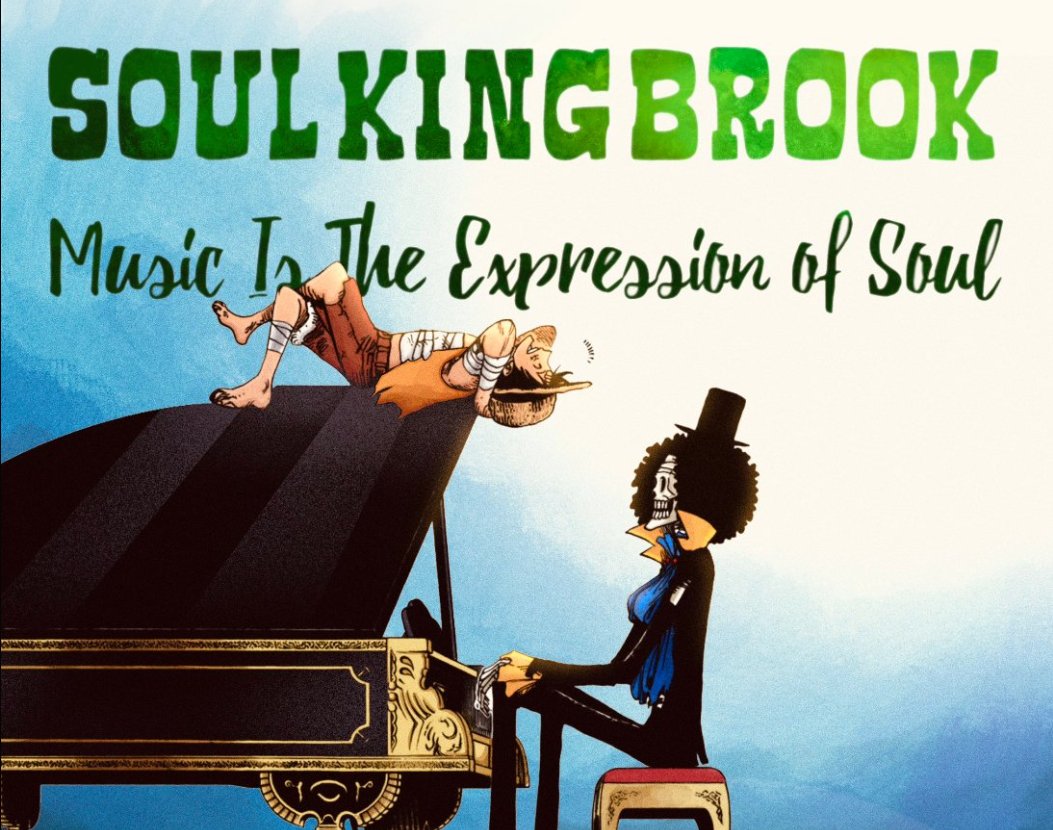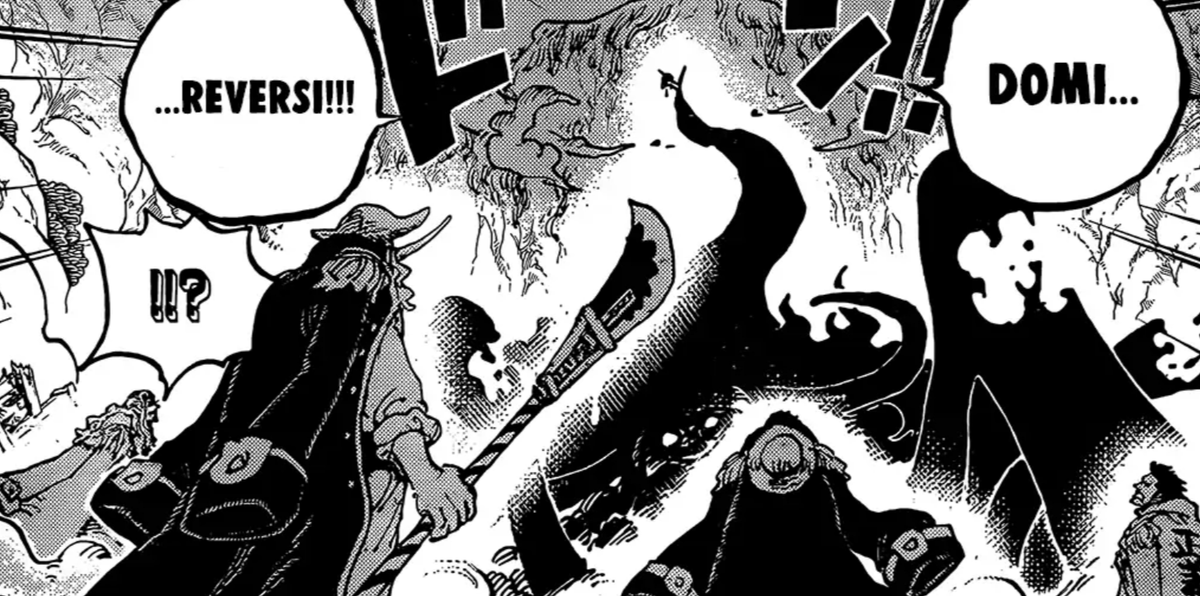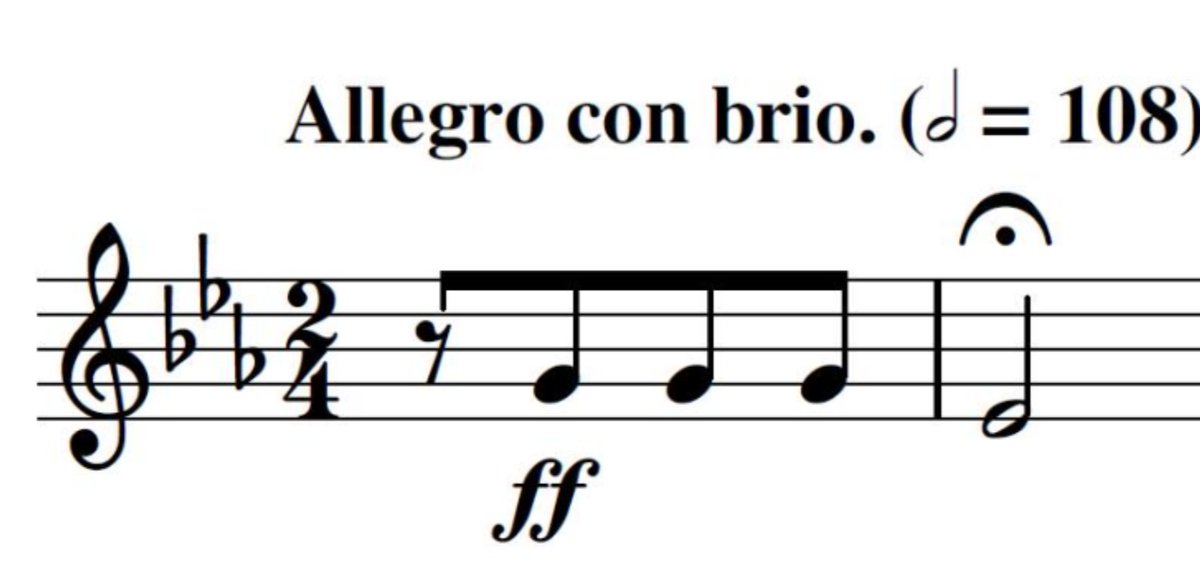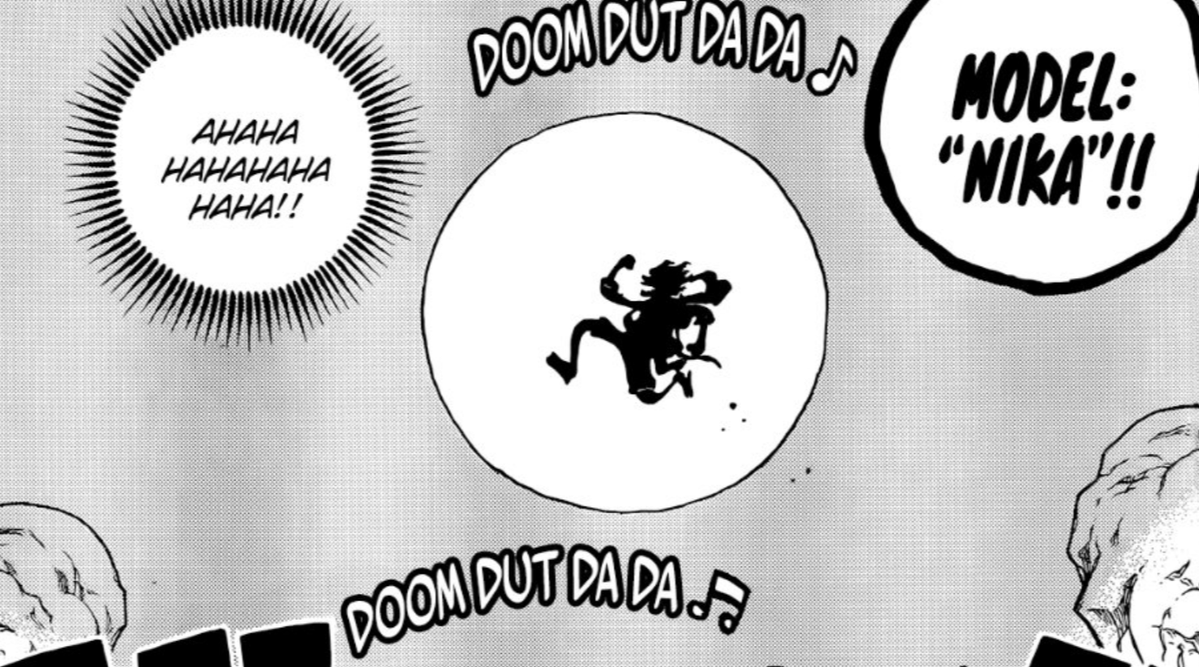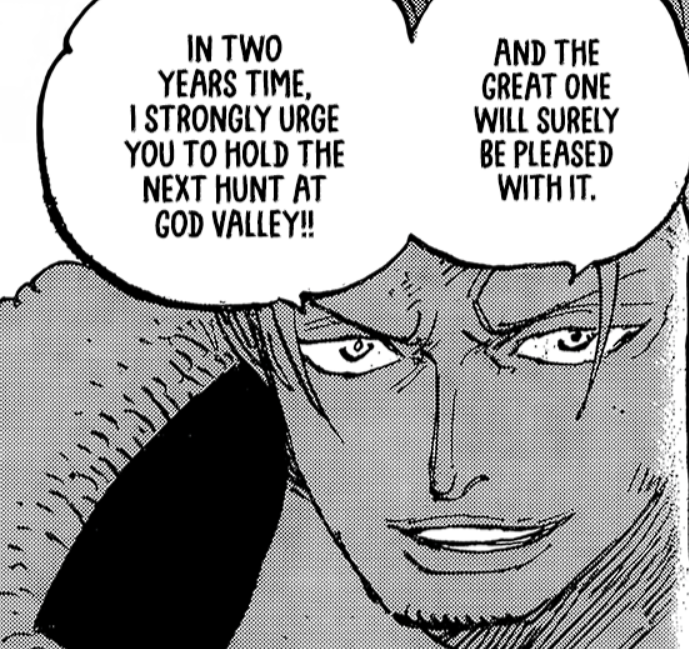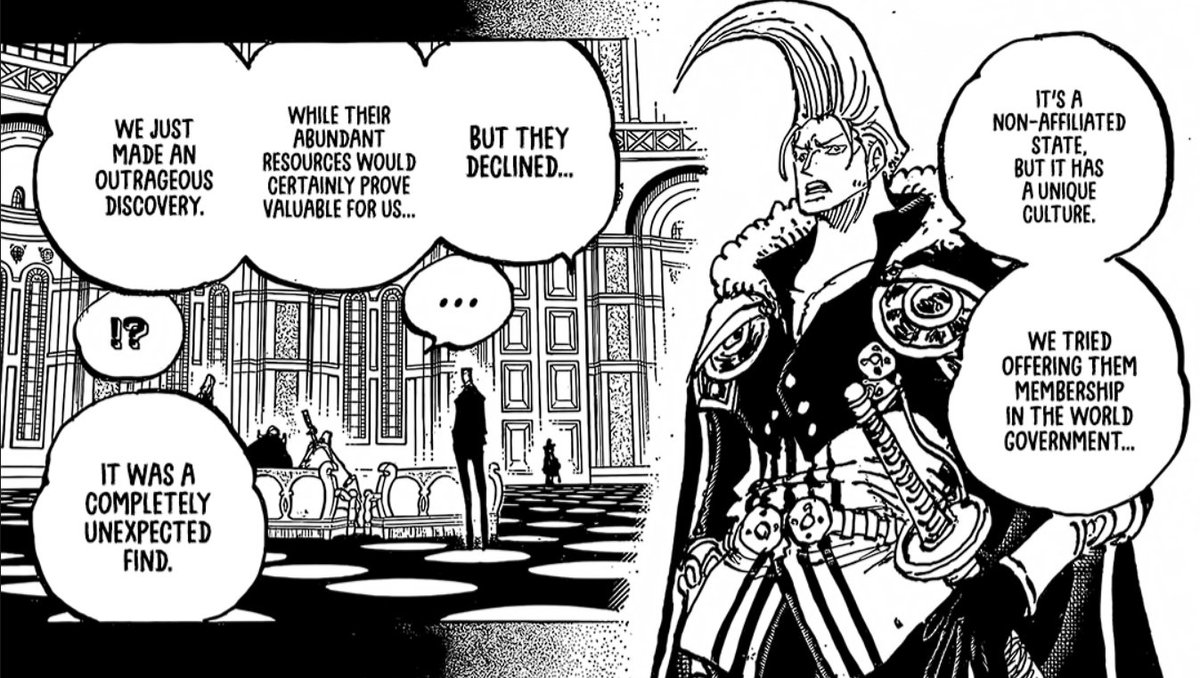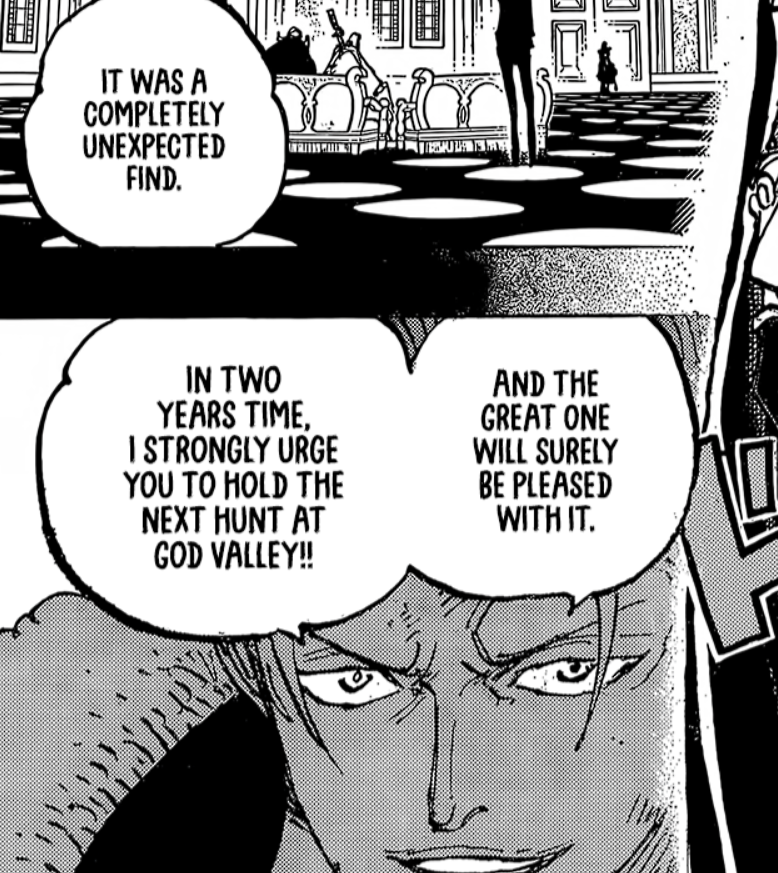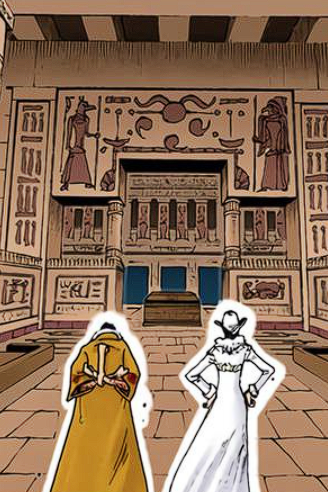In this thread, I will aim to explore the significance of Brook's character, Bink's Sake, and of music in the One Piece world and in the real world.
Let's get in to it.
Let's get in to it.

As a basis for how significant Brook's character and his role as musician are, it is important to remember that having a musician on his crew was one of Luffy's highest priorities since the beginning.
This also somewhat tells us the thematic significance of music in One Piece
This also somewhat tells us the thematic significance of music in One Piece

The significance of Brook's character is in part as a personification of how music is an invocation of the soul.
When we look at the lyrics of Bink's Sake, we can see that Brook himself represents the actualisation of part of the song.

When we look at the lyrics of Bink's Sake, we can see that Brook himself represents the actualisation of part of the song.


Through this, both Brook's character and the song of Bink's Sake connect to the overall themes of life and death in One Piece.
As is true in the real world as well, songs and music have long since been a form of remembrance and celebration of life.
As was said by Dr Hiriluk -
As is true in the real world as well, songs and music have long since been a form of remembrance and celebration of life.
As was said by Dr Hiriluk -

Before we explore Brook's character, Bink's Sake and the subsequent significance of music in the One Piece world overall, let's take a look at what music means to us in the real world. 

I have been doing quite a bit of investigating on this subject and the thing that stands out most to me is how music connects science and religion
For example, Stephon Alexander's book, The Jazz of Physics, explores the fundamental link between music and the structure.
For example, Stephon Alexander's book, The Jazz of Physics, explores the fundamental link between music and the structure.

This idea, that music and sounds connect to the very fabric of reality, is also shared by the ancient religious concept of chanting, 'Om.'
It is said that the harmonic resonance of, 'Om,' invokes the creation of all things and the ultimate reality & final truth of all existence.
It is said that the harmonic resonance of, 'Om,' invokes the creation of all things and the ultimate reality & final truth of all existence.

To demonstrate this, Stephon Alexander makes reference to, 'The Circle of Fifths.' This is a perfectly geometrically symmetrical pattern through which chromatic pitches can be organised. 

If you're interested, you can watch Stephon Alexander do a reading of this book here.
Connecting these ideas back to the fundamental religious concepts that are rooted in chanting, we can understand why music has always been so significant to humanity.
The Hindus call this, 'Ātman' meaning, 'self-existence.' Meaning that music is a way of self affirmation.
The Hindus call this, 'Ātman' meaning, 'self-existence.' Meaning that music is a way of self affirmation.

This concept is invoked in some of the earliest religious scriptures in the world, such as the Samaveda, the ancient Vidic Sanskrit texts that record the 'Songs of Knowledge.'
These fundamental chants have been used in meditation for millennia.
These fundamental chants have been used in meditation for millennia.
Chanting can be found in almost all cultures in some form, and I find that these are some of the strongest examples of how music can invoke the expression of soul.
One of my favourite examples is this the Faroese chants of Eivor, who famously did the soundtrack for Last Kingdom.
One of my favourite examples is this the Faroese chants of Eivor, who famously did the soundtrack for Last Kingdom.
However, the voice is not the only instrument that is important to this concept. The drums are also an essential part of demonstrating how music unifies all of these concepts.
To help me explain this, here is Wynton Marsalis, explaining the fundamentals of the Two-Beat groove.
To help me explain this, here is Wynton Marsalis, explaining the fundamentals of the Two-Beat groove.
This two-beat groove is almost like the heartbeat of music, and perhaps it is no coincidence that this exact concept appears in One Piece.
The Drums of Liberation invoke how the heartbeat itself follows this two-beat rhyme.
The Drums of Liberation invoke how the heartbeat itself follows this two-beat rhyme.

Marsalis also explains the cultural origins of the drum set and why drums are associated with liberation in the real world.
He explains that the origins of the Trap-drum set is rooted in the tradition of, 'Patting Juba.'
He explains that the origins of the Trap-drum set is rooted in the tradition of, 'Patting Juba.'
Wynton goes on to explain that slaves were not allowed to play drums & so they resorted to any alternative means, even making music with their own bodies through an art called 'Patting Juba'.
Music is not only self affirmation, it also invokes the universal desire for freedom.
Music is not only self affirmation, it also invokes the universal desire for freedom.

With all this in mind, when we listen to Bink's Sake again, we can hear that the song follows all of these principles explained by the likes of Alexander and Marsalis.
To bring things to a conclusion. This is the significance of Brook's character and the song of Bink's Sake.
Together they represent and demonstrate the universal significance of musical expression of the soul.
Together they represent and demonstrate the universal significance of musical expression of the soul.

That's about all I've got for this one. Thank you for reading 🙏
Be sure to listen to some music today
Be sure to listen to some music today

I'll leave you with this, a song that I think perfectly encapsulates Brook's story
• • •
Missing some Tweet in this thread? You can try to
force a refresh

